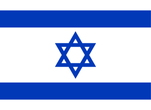
Call 0330 880 3600 Calls may be monitored or recorded. Opening Times.
- TRAVEL INSURANCE
- COVID-19 COVER
- More Options
- Help & Advice
- Existing Customers

Call 0330 880 3600 Calls may be monitored or recorded. Opening Times.

Need help?
UK Customer Services0330 880 3600*
Open Monday to Friday 9:00am to 6pm, Saturday 8:30am to 4pm and closed Sundays.
*Calls are recorded for training and quality purposes.

Official name: State of Israel
Capital city: Jerusalem (international recognition varies; many embassies are in Tel Aviv)
Languages spoken: Hebrew, Arabic; English is widely understood
Population: Around 9.7 million
Currency: Israeli new shekel (ILS)
Time zone: GMT+2 (GMT+3 in summer)
Driving side: Right
Climate: Mediterranean on the coast, arid in the south and east; hot, dry summers and mild, wet winters
Israel is a country of striking contrasts, from the beaches of Tel Aviv and the religious sites of Jerusalem to the Negev desert and the Dead Sea, the lowest point on Earth. Its culture is a blend of ancient history, diverse communities, and cutting-edge modern life. However, the political and security situation remains sensitive.
Tensions and conflict can flare unpredictably, especially near Gaza, the West Bank, and the northern borders. Travellers should always check the latest government advice before visiting and remain alert in public spaces. Despite the challenges, millions of tourists visit Israel every year for its unique mix of spirituality, history, and natural wonders.
Israel lies at the eastern edge of the Mediterranean Sea, bordered by Lebanon, Syria, Jordan, and Egypt, as well as the Palestinian territories. The landscape includes fertile plains, arid deserts, dramatic cliffs along the Dead Sea, and rugged hills and valleys. The country’s geography has shaped its climate and history, as well as its diverse agricultural traditions.
Ben Gurion Airport, near Tel Aviv, is the country’s main international gateway, offering extensive global connections. Domestic flights link Tel Aviv with Eilat, on the Red Sea. Trains and buses are efficient between cities, though car hire offers greater flexibility, especially for exploring rural or desert areas. Security checks are common at transport hubs, and travellers should allow extra time when moving through airports and major stations.
UK citizens can visit Israel for up to 90 days without a visa. Passports are stamped electronically rather than physically, avoiding issues when travelling to other countries in the region. Longer stays or purposes such as work or study require the appropriate visas. The British Embassy is located in Tel Aviv, and most countries maintain diplomatic representation either there or in Jerusalem.
The Israeli new shekel (ILS) is the official currency. Credit and debit cards are widely accepted, and ATMs are plentiful. While Israel is relatively expensive compared to some neighbours, the quality of food, accommodation, and services is high. Bargaining is common in markets but not in shops or restaurants.
Israel has an advanced healthcare system, with hospitals and clinics that meet international standards. Emergency services are reliable and English is commonly spoken among medical staff. Tap water is safe to drink across most of the country. Travel insurance is strongly recommended to cover private treatment or medical evacuation, as healthcare can be costly without cover. Pharmacies are widespread and well-stocked.